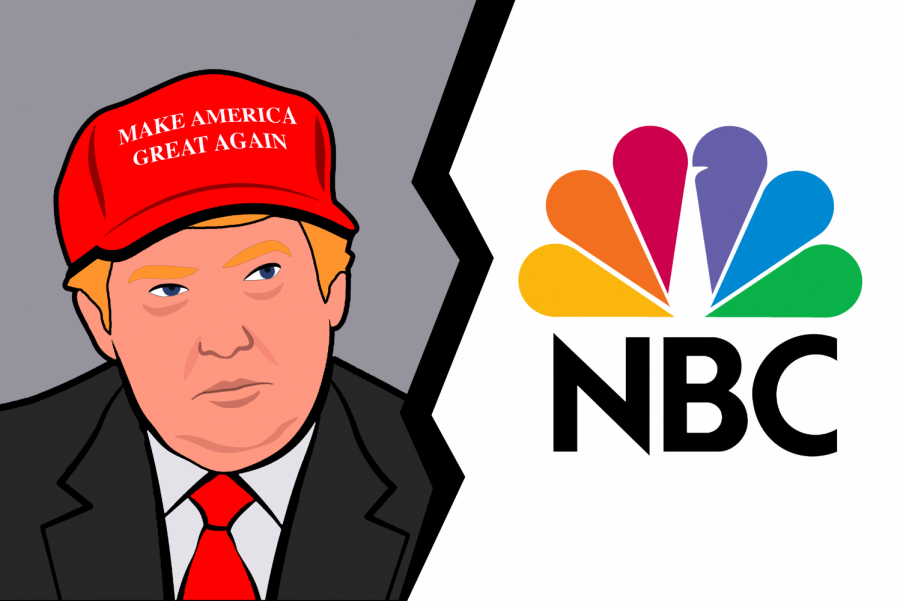Trump’s attack on NBC demonstrates disrespect for First Amendment, continues “Fake News” accusations
October 19, 2017
President Donald Trump has denounced several critical news reporters who disagree with his leadership and policies. NBC is the latest news source to face his wrath.
During an aired news segment on Oct. 11, NBC reported that, in July, Trump said he wanted to increase the U.S. nuclear arsenal, allegedly prompting Secretary of State Rex Tillerson to call Trump a “moron.” Trump objected to the story over Twitter, claiming it was “made up to demean.” He threatened to strip the network of their broadcasting license. During a press conference later in the week, Trump avoided questions about nuclear weaponry and instead continued to complain about the press.
“It’s frankly disgusting the way the press is able to write whatever they want to write,” Trump said.
Trump’s comments suggest the suppression of free press, and his complete disregard for the first amendment. The Executive Director of the First Amendment Coalition, David Snyder, told Newsweek that Trump’s rhetoric is similar to that of “the leader of some authoritarian country.” Cuban dictator Hugo Chavez, for example, notoriously revoked licensing to news stations that disagreed with him. If Trump were to invalidate NBC’s networking license, he would be censoring the media, making him no different from Chavez.
The Trump Presidency has thrown the news cycle for a loop. Trump’s first eight months in office were plagued by more scandals than any other previous U.S. administration. To name a few of the more bizarre scandals: Trump is actively asking if he is allowed to pardon himself from any crimes he has committed, and he has claimed that he will attack North Korea with “fire and fury.” Any one of those stories represents a fundamental breakdown in political norms, and merits coverage by and/or a response from any journalist, whose duty is to uncover the truth for the American public.
It is true: Trump’s primary enemy during his presidency has been the media. Trump has been the top story day in and day out. In fact, a study from Pew Research center found that only 5 percent of news stories about Trump in his first 60 days were positive. However, Trump brings the negative press onto himself. For example, ex-Press Secretary Sean Spicer blatantly lied about the size of Trump’s inauguration crowd, even claiming that it was the most attended inauguration in recent history. For reporters covering the Trump White House, the incident raised a tricky question: how do you cover a White House that isn’t afraid to be caught lying?
A reporter’s primary duty is to inform the public of the truth by presenting facts. It is a fact that Trump is entangled in investigations about his involvement with Russia during the election. It is a fact that Trump condemned both the white supremacists and those protesting the white supremacists in the Charlottesville, Va. terrorist attacks. It is a fact that Trump’s approval ratings are historically low. Although he may try, facts cannot be disputed.
Trump’s rhetoric shows a concerning lack of respect towards the First Amendment; he alleges that this is all “fake news” and “alternative facts.” But it should be noted that this is not the first time (and certainly not the last time) Trump has threatened to limit or castigate news sources that disagree with him. For example, in March the president called the New York Times a “failing” news source, inspiring the publication to publish “The 380 People, Places and Things Donald Trump Has Insulted on Twitter: A Complete List.” So far, Trump’s threats have just be an idle attempt to ward off adversaries. Hopefully, they will remain that way.





















